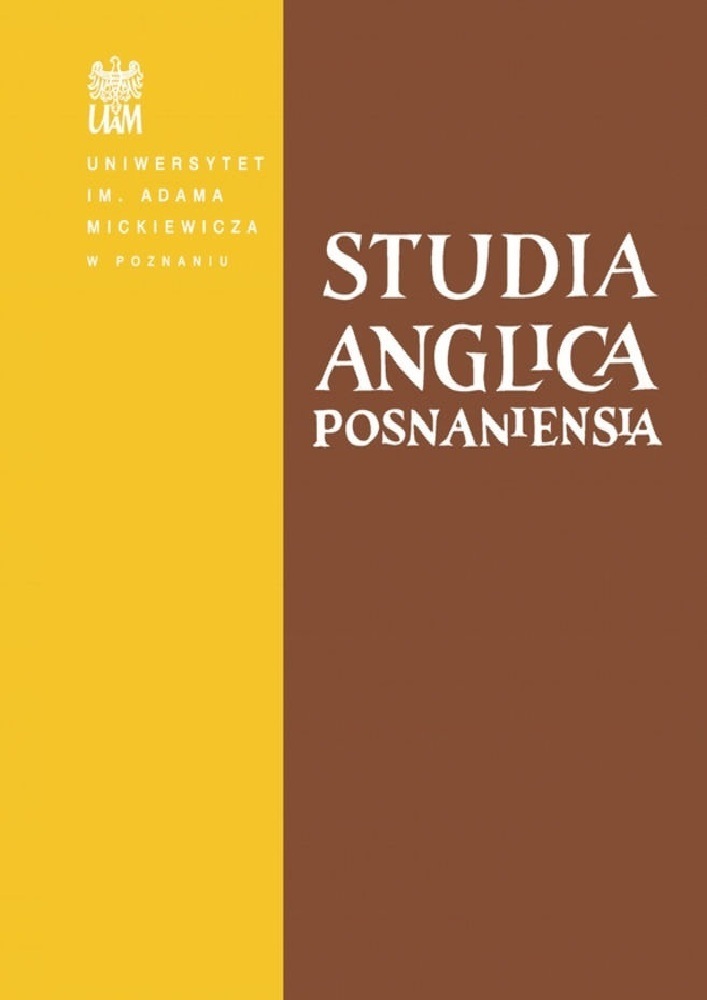Abstract
Using the U.S.-Mexican border as the place of enunciation, Cantú’s autoethnobiographical novel insists on the materiality of the border, especially for those living on its southern side, while simultaneously deconstructing it as artificial - a line splitting families and assigning nationalities on an arbitrary basis. Being a collage of photographs from the time the writer was growing up in southern Texas and the cuentos inspired by these visuals, Cantú’s Canícula documents how border crossings and re-crossings become symptomatic of living in a liminal space and how they destabilize the concept of nationality as bi-national families must learn to live with ambiguity. On the one hand, there is the undeniable materiality of the border, with its pain, fear, deportations, and other discriminatory practices; on the other, there is a growing border community of resistance cultivating the memory that they are not immigrants, that they lived in Texas before the Guadalupe-Hidalgo treaty. The paper examines the community’s strategies of survival in the contested cultural and social space and advances the thesis that, giving her community an awareness of its homogeneity and reclaiming its place within the larger socio-political context, Cantú becomes an agent of empowerment and change. She helps decolonize knowledge and being.
References
Anzaldúa, Gloria. 1999 [1980]. Borderlands / La Frontera: The New Mestiza. San Francisco: San Lute Books.
Arias, Arturo. 2002. After the Rigoberta Menchú controversy: Lessons learned about the nature of subalternity and the specifics of the indigenous subject. Modern Language Notes 117 (2): 481-505.
Berg, Ragnhild Solvi. 2010. When truth is at stake: The Rigoberta Menchú controversy. Global knowledge: Research across boundaries. Ed. Runo Isaksen. SIU. (accessed 20 April 2015).
Beverley, John. 2004. Testimonio on the politics of truth. Minneapolis: University of Minnesota Press.
Cantú, Norma Elia. 1995. Canícula: Snapshots of a girlhood en la Frontera. Albuquerque: University of Mexico Press.
Cantú, Norma Elia. 2003. The writing of Canicúla: Breaking boundaries, finding form. In Gabriela F. Arredondo, Aída Hurtado, Norma Klahn, Olga Nájera-Ramírez & Particia Zavella (eds.) Chicana feminisms: A critical reader, 97-108. Durham, NC: Duke University.
Castillo, Debra A. & María Socorro Tabuenca Córdoba. 2002. Border women: Writing from la Frontera. Minneapolis: University Press of Minnesota. Education of the Heart-Quotes by Cesar Chavez. United Farm Workers. ufw.org. (accessed 27 February 2015).
Gaztambide-Fernández, Ruben. 2014. Decolonial options and artistic/aestheSic entanglements: An interview with Walter Mignolo. Decolonization: Indigeneity, Education & Society 3 (1): 196-212.
Gutierrez Y Muhs, Gabriella. 2007. Communal feminisms: Chicanas, Chileans, and cultural exile : Theorizing the space of exile, class, and identity. Lanham, MD: Lexington Books.
McCracken, Ellen. 2001. Hybridity and the space of the border in the writing of Norma Elia Cantú. Studies in 20th Century Literature 25 (1): 261-280.
Merman-Jozwiak, Elisabeth & Nancy Sullivan. 2009. Testimonio, reconnection, and forgiveness. Conversation with Norma Elia Cantú. In Elisabeth Merman-Jozwiak & Nancy Sullivan (eds.) Conversations with Mexican American Writers: Languages and Literatures in the Borderlands, 115-137. Jackson: University Press of Mississippi.
Mignolo, Walter. 2000. Local histories/Global designs: Coloniality, subaltern knowledges, and border thinking. Princeton, New Jersey: Princeton University Press.
Mignolo, Walter. 2009. Epistemic disobedience, independent thought and de-colonial freedom. Theory, Culture & Society 26 (7-8): 1-23.
Mignolo, Walter. 2011. The darker side of modernity: Global futures, decolonial options. Durham & London: Duke University Press.
Pratt, Mary Louise. 1999. Arts of the Contact Zone. In David Bartholomae & Anthony Petrosky (eds.) Ways of reading. 5th edn. New York: Bedford/St. Martin’s. Internet Archive Wayback Machine. (accessed 1 September 2015).
Pratt, Mary Louise. 2001. I, Rigoberta Menchú and the ‘culture wars.’ In Arturo Arias (ed.) The Rigoberta Menchú controversy. With a response by David Stoll, 29-56. Minneapolis: Minnesota University Press.
Pratt, Mary Louise. 2008. Imperial eyes: Travel writing and transculturation. New York: Routledge
